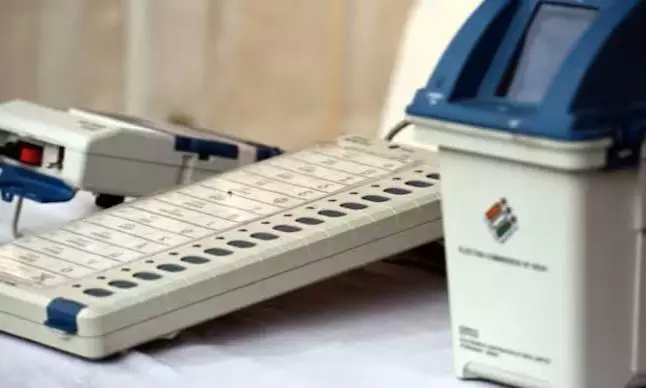
SC finds no merit in EVM tampering, dismisses PIL for return to ballot papers
text_fieldsThe Supreme Court on Tuesday rejected a public interest litigation (PIL) filed by evangelist K A Paul, seeking the reintroduction of ballot papers in elections instead of Electronic Voting Machines (EVMs).
The court, presided over by a two-judge bench including Justice Vikram Nath and Justice P B Varale, dismissed the plea while observing that allegations of EVM tampering often arise from electoral losses.
Justice Vikram Nath, presiding over a two-judge bench, remarked that allegations of EVM tampering often surface only when election results are unfavourable. He referenced instances involving political leaders, including Chandrababu Naidu and Jagan Mohan Reddy, who raised concerns about EVMs after facing electoral defeats. These observations were made while dismissing the PIL filed by evangelist K A Paul.
Paul argued that the use of EVMs undermines democracy and claimed the ballot paper system was prevalent in most democratic nations, citing examples from his international experiences. He expressed concerns about the potential for tampering with EVMs and referenced allegations by political figures in Andhra Pradesh following election defeats.
During the hearing, Paul described his extensive background in humanitarian work, mentioning his leadership of an NGO, the Global Peace Initiative, and his participation in global summits.
He claimed support for his PIL from retired civil servants, judicial officials, and political parties, and argued that corruption in elections, exemplified by the recent seizure of substantial amounts of cash by the Election Commission, underscored the need for physical ballot papers.
The bench questioned the petitioner’s rationale for India reverting to ballot papers while other nations adopted EVMs. Paul maintained that the ballot system ensures transparency and is less susceptible to manipulation. He further cited statements by prominent figures suggesting vulnerabilities in electronic voting systems.
The court, however, found no merit in the plea, stating that the argument lacked substantive evidence to support claims of systemic issues with EVMs.























